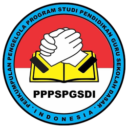Think Pair Share Learning Assisted By Wordwall On Mathematics Learning Outcomes
DOI:
https://doi.org/10.21009/PIP.382.1Keywords:
Think Pair Share, Wordwall, Learning OutcomesAbstract
Mathematics is a mandatory subject that plays an important role, therefore the lack of adjustment to learning models and supporting media in the learning process can be one of the factors causing low learning outcomes. The purpose of this study was to determine the effect of think pair share supported by wordwall on the mathematics learning outcomes of fifth-grade students at Elementary School. The research was conducted at SDN Batu Ampar 02 Pagi in the second semester of the academic year 2023/2024. The research method used was quantitative research with a quasi-experimental design. The sampling system used non-random sampling of 30 students in the experimental class and 30 students in the control class. The instrument used was an essay test that had been validated and tested for reliability. In data analysis, tests for analysis requirements were conducted through tests of normality (Kolmogorov-Smirnov) and homogeneity, while hypothesis testing used independent sample t-test with SPSS version 29.0.0.0. Based on the analysis, it was found that the average learning outcomes of the experimental class using think pair share supported by wordwall were 79.75, which was significantly better than the average learning outcomes of the control class students using conventional learning, which scored 70.25. The t-test result obtained a sig value (2-tailed) of 0.003 (0.003 < 0.005), hence Ha is accepted and H0 is rejected. Therefore, it can be concluded that in this study, there is an influence of the think pair share supported by wordwall learning model on the mathematics learning outcomes of fifth-grade elementary school students.
Downloads
Published
How to Cite
Issue
Section
License
Copyright (c) 2024 Citra Ayu Sekar Fajrin, Desak Made Darmawati

This work is licensed under a Creative Commons Attribution-NonCommercial-ShareAlike 4.0 International License.
Authors who publish with this Journal agree to the following terms:
- Author retain copyright and grant the journal right of first publication with the work simultaneously licensed under a creative commons attribution licensethat allow others to share the work within an acknowledgement of the work’s authorship and initial publication of this journal.
- Authors are able to enter into separate, additional contractual arrangementfor the non-exclusive distribution of the journal’s published version of the work (e.g. acknowledgement of its initial publication in this journal).
- Authors are permitted and encouraged to post their work online(e.g. in institutional repositories or on their websites) prior to and during the submission process, as it can lead to productive exchanges, as well as earlier and greater citation of published works.
-
Users/public use of this website will be licensed to CC BY-NC-SA Creative Commons Attribution-NonCommercial-ShareAlike 4.0 International License











